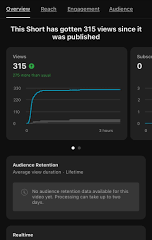The Importance of Meta Tags in Search Engine Optimization

Introduction
In the digital landscape, optimizing online visibility is crucial for businesses, bloggers, and web developers. One of the fundamental aspects of SEO is utilizing meta tags effectively. Meta tags provide information about a web page to search engines and users, influencing discovery and ranking. Understanding how to implement meta tags can significantly enhance your website’s performance in search results.
What Are Meta Tags?
Meta tags are small snippets of text that describe the content of a web page. They are placed in the HTML code and include various types such as title tags, meta descriptions, and keywords. Furthermore, while they do not directly affect search rankings, they play an essential role in on-page SEO and user experience.
Types of Meta Tags
1. Title Tags: This is the most important meta tag, providing the title of the web page. It appears in search engine results pages (SERPs) as the clickable headline and is critical for SEO.
2. Meta Descriptions: This tag offers a brief summary of the page content and appears under the title in SERPs. A compelling meta description can enhance click-through rates.
3. Meta Keywords: Although less relevant today, these were once crucial for indicating keywords that the page targeted. Most search engines no longer consider this tag.
Current Trends and Best Practices
With search algorithms continually evolving, it’s essential to follow current best practices for meta tags. Conducting keyword research to embed relevant terms in your title and meta descriptions is imperative. It’s also vital to keep title tags under 60 characters and meta descriptions within 155-160 characters to ensure they display correctly in search results.
Moreover, utilizing action-oriented language in meta descriptions can improve user engagement. For instance, incorporating verbs like ‘discover,’ ‘learn,’ or ‘explore’ can entice clicks.
Conclusion
In the competitive online space, understanding and utilizing meta tags is not merely an option but a necessity for anyone seeking improved visibility. By optimizing title tags and meta descriptions strategically, webmasters can enhance user engagement, increase organic traffic, and potentially improve their SERP rankings. As SEO continues to evolve, staying updated on best practices will ensure that your websites remain competitive and accessible. Investing time into optimizing your meta tags can yield significant returns in your overall digital marketing strategy.









